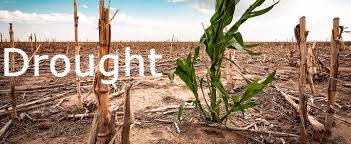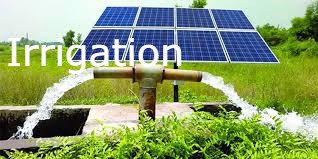10 March 2025
ICID Events
6th African Regional Conference, Abuja, Nigeria, 14-18 April 2025
Theme: “Tackling Irrigation Development and Water Management Crisis in Africa.”
11th International Micro Irrigation Conference, 27th - 29th April 2025, Baghdad, Iraq
76th IEC Meeting & 4th World Irrigation Forum, Kuala Lumpur, Malaysia, 7-13 September 2025
77th IEC Meeting & 26th ICID Congress, Marseille, France, 12-18 October 2026
Theme: “Agriculture and climate change: stakes and levers for irrigation and drainage.”
78th IEC Meeting & 5th World Irrigation Forum (WIF5), at Guoce International Conference & Exhibition Center, Beijing, China, 2027
Other Events
2026 ASABE Global Symposium on sustainable Micro-irrigation (MI) advances in academia, research, industry and outreach - drop to boom: Land, water, energy, climate & food securities" 11-17 January, 2026 at Punta Borinquen Resort, Aguadilla - Puerto Rico - USA". More details appear at
Water, as the key natural resource, is fundamental to all economic, social and environmental development processes. Thus, efficient water resources management is essential for achieving poverty reduction through sustainable water management in irrigated agriculture. Proper irrigation systems can secure uninterrupted agriculture. Irrigation schemes play a key role in assuring timely and adequate agricultural water supply apart from other benefits. ICID has taken an initiative to document development of irrigation in the World through irrigation schemes. The register will fulfil a much-awaited global repository of information in the systematic irrigation and agricultural water management. the register is being implementing as a collaborative effort of National Committees of ICID and other interested entities dealing with irrigation and drainage. Please Visit
Invitation to Join ICID Membership
The Commission thrives on its worldwide network of experts from multifarious disciplines from 70 countries, who came together in the interest of global water management. All are members contribute to this higher cause by offering their voluntary services.
Currently, there are two different kinds of membership categories; National Committees and Direct Members. National Committees (NC) represent their countries mostly through their government departments responsible for irrigation, drainage or agricultural water management.
Companies, institutions, and individuals can also participate in ICID activities through their respective NCs or as Direct Members (DM). Professionals, individuals and officers of a government or of an institution or institutions - government and non-government; and companies, effectively representing interests within the scope of the objects of the Commission can participate in ICID activities through Direct Membership, to further the objects of the Commission in their countries or sovereign areas.
In the course of our activities and events conducted throughout the world, we associate with many different kinds of NGOs, national governments, researchers, corporate sectors, civil society organizations, and individuals. They are not necessarily members of ICID network but our associates and an important part of ICID fraternity. For more details, please visit: https://icid-ciid.org/view_page/2
Purdue to Host First-Ever Resilient Agriculture Summit in Indiana
6 March 2025
The summit will feature professionals involved in purchasing corn, soybeans, and other crops, as well as experts in soil health and conservation.
Global Seed Leaders Unite in Nairobi to Support Sustainable African Agriculture
5 March 2025
The International Seed Federation (ISF) convened its board meetings in Nairobi, bringing together national, regional and global seed industry leaders to reinforce their commitment to Africa’s agricultural development, especially in the face of climate change and a rapidly evolving geopolitical landscape.
From Marginal to Farmland: Biosaline Agriculture’s Promise in Water-Scarce Lands
4 March 2025
Much more needs to be done to scale up research and adoption of this technology in Africa – including ensuring long-term funding from local governments and integrating biosaline solutions into mainstream agricultural policies.
Worldwide rooftop photovoltaic electricity generation may mitigate global warming
7 March 2025
Solar energy is an essential technology for climate change mitigation, showing impressive technological learning curves and large future potential. Rooftop photovoltaic (RPV), initially a niche solution may also offer a global-scale opportunity to reduce fossil fuel reliance.
Report: How climate insights drive a more reliable renewable energy transition
4 March 2025
The report was jointly produced by the World Meteorological Organization (WMO), the International Renewable Energy Agency (IRENA) and the Copernicus Climate Change Service (C3S), operated by the European Centre for Medium-Range Weather Forecasts (ECMWF).

Climate change: La Niña fades, as global heat keeps rising
6 March 20253
The weak but significant La Niña weather event that began in December is likely to be brief, the World Meteorological Organization (WMO) has announced.
Vulnerability of amphibians to global warming
5 March 2025
Amphibians are the most threatened vertebrates, yet their resilience to rising temperatures remains poorly understood. This is primarily because knowledge of thermal tolerance is taxonomically and geographically biased compromising global climate vulnerability assessments.
Global sea ice cover at a record low and third-warmest February globally
5 March 2025
Arctic sea ice reached its lowest monthly extent for February, at 8% below average. This marks the third consecutive month in which the sea ice extent has set a record for the corresponding month.
Storm warning for life-threatening flash floods as Australians ordered to evacuate
7 March 2025
Tropical Cyclone Alfred has been downgraded but more than 250,00 homes and businesses have already lost power in Queensland and New South Wales, while at least 39 people have been rescued from flood waters.
Evacuations as torrential rains flood Jakarta
4 March 2025
Hundreds evacuated from dozens of flooded neighborhoods around Jakarta on Tuesday as torrential rains pounded the Indonesian capital and its surrounding satellite cities, causing several rivers to overflow.
Investing in Women is the key to resilient food systems
7 March 2025
Women play a central role in food systems, contributing to agricultural labor, production, household nutrition, and the wider economy. However, the barriers they face shaped by deep-rooted social and cultural norms continue to limit their potential and hinder progress in agriculture.
A food crisis is brewing – Climate change could put half of the world’s crops at risk
7 March 2025
New research reveals that a significant drop in crop diversity due to temperature increases exceeding 1.5°C could have a profound impact on global food security.
Millions in Central Sahel and Nigeria at risk of food cuts as the world food programme faces severe funding crisis
7 March 2025
In neighboring Nigeria, the prolonged humanitarian crisis, worsened by high inflation and weather-related shocks, is endangering the lives of children, pregnant women and entire communities.

Vast network of canals found underneath world’s first city
7 March 2025
The canal network, detailed in the journal Antiquity, remained untouched for centuries due to a shift in the Euphrates river’s course in the first millennium BC.
Lake Chad isn’t shrinking — but climate change is causing other problems
28 February 2025
Over many years, communities living near Lake Chad have developed strategies to take advantage of fluctuating water levels. This includes practicing different types of agriculture, switching to other activities like fishing in some seasons, moving to areas with more amenable conditions and more.
World Water Day: Three things to know about protecting drinking water
5 March 2025
The water protection planning template has five parts, each involving community participation including: assessing water sources, identifying associated risks, taking management actions, implementing actions, and initiating annual plan reviews.
Saudi Arabia outlines water security achievements at global forum in Indonesia
1 March 2025
The session reviewed the outcomes from the 10th World Water Forum, which took place in Bali in May 2024 and gathered leaders, ministers, and officials from 160 countries.
Melting glaciers threaten global water security
25 February 2025
Glaciers hold vast amounts of fresh water that are essential for people and the environment. Recent findings show that these ice bodies have been shrinking faster than many expected, sparking serious concerns among experts.

Water Insecurity in Central Asia: The 2021 Central Asia drought, the loss of the Aral Sea, the evaporation of glaciers in the Tian Shan mountains, and the alarming shrinking of the Caspian Sea are reminders of how natural and man-made disasters have destructive consequences on Central Asia’s strained water resources. https://www.atlanticcouncil.org/in-depth-research-reports/report/central-asia-needs-regional-and-international-cooperation-to-bolster-water-security/
The Role of Digital and Climate-Smart Agriculture in Climate Change Mitigation: A Systematic Mapping Protocol for South Asia and Sub-Saharan Africa
Climate-smart agriculture is a key global policy priority due to its potential to support climate change adaptation, mitigation, and food security through innovative practices and technologies. Recent advancements in digital agriculture technologies, such as precision agriculture and data analytics, are enabling its implementation. https://cgspace.cgiar.org/items/9c71917c-35db-4501-aaeb-6b0b58567b54
Emissions Gap Report 2024: The report looks at how much nations must promise to cut off greenhouse gases, and deliver, in the next round of Nationally Determined Contributions (NDCs), due for submission in early 2025 ahead of COP30. Cuts of 42 per cent are needed by 2030 and 57 per cent by 2035 to get on track for 1.5°C. https://www.unep.org/resources/emissions-gap-report-2024
ICID Publication - Historical Water Sustainability, 2023
The latest data from WRI’s Aqueduct Water Risk Atlas (August 2023) show that 25 countries housing one-quarter of the global population face extremely high water stress each year, regularly using up almost their entire available water supply. And at least 50% of the world’s population around 4 billion people live under highly water-stressed conditions for at least one month of the year. https://icid-ciid.org/icid_data_web/HWS-ePublication.pdf
ICID Publication - Compendium World Heritage Irrigation Structures (2014-2022)
Since the dawn of human civilization water has been an enabler of societal development so much so that we started believing “Water is Life,” a common phrase in most languages. And, life is multi-dimensional involving not only a physical aspect but also economic, social, cultural, political, religious, and spiritual concepts.
https://icid-ciid.org/icid_data_web/WHISCompendium-ePublication.pdf
ICID Publication - Water-Saving in Agriculture - A Roadmap to ICID Vision 2030
This publication is in a way to celebrate the 7-decade existence and relevance of ICID which started with a handful of members and has grown to represent more than 90% of the world irrigated area.
https://www.icid-ciid.org/icid_data_web/Watsave_eBook2022_comp.pdf
Global Climate Litigation Report: 2023 Status Review
Climate litigation represents a frontier solution to change the dynamics of the fight against climate change. This Global Climate Litigation Report: 2023 Status Review shows that people are increasingly turning to the courts to combat the climate crisis. As of December 2022, there have been 2,180 climate-related cases filed in 65 jurisdictions, including international and regional courts, tribunals, quasi-judicial bodies, or other adjudicatory bodies, such as Special Procedures at the United Nations and arbitration tribunals. https://www.unep.org/resources/report/global-climate-litigation-report-2023-status-review
Climate Crossroads: Fiscal Policies in a Warming World - The report takes stock of mitigation policies across countries and presents the trilemma facing policymakers of balancing between achieving climate goals, debt sustainability, and political feasibility. https://www.imf.org/en/Publications/FM/Issues/2023/10/10/fiscal-monitor-october-2023
Climate Change 2023: Synthesis Report - The much-anticipated Climate Change 2023: Synthesis Report is based on years of work by hundreds of scientists during the Intergovernmental Panel on Climate Change’s (IPCC) sixth assessment cycle which began in 2015. https://www.unep.org/resources/report/climate-change-2023-synthesis-report
|

